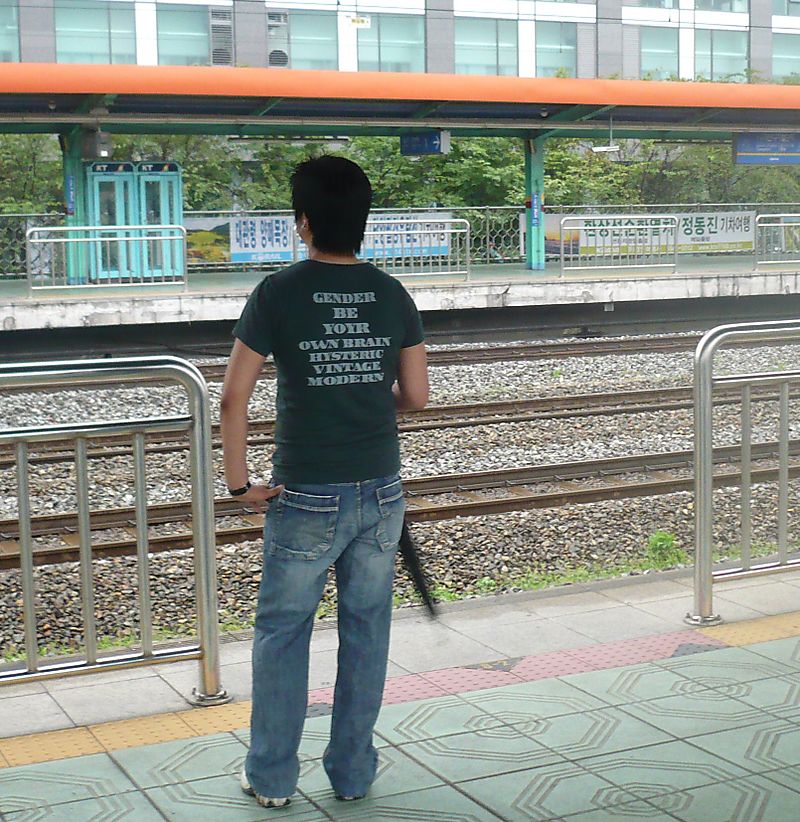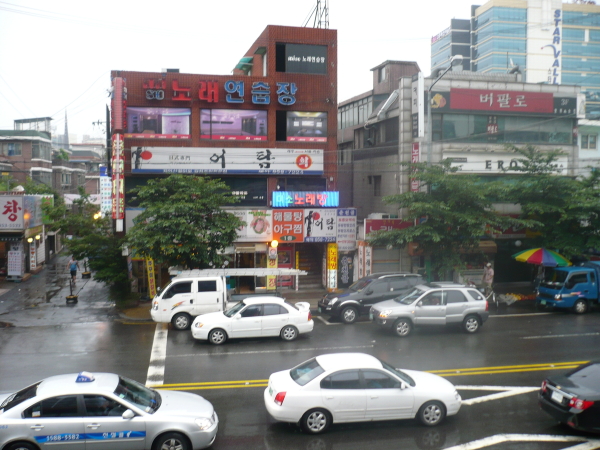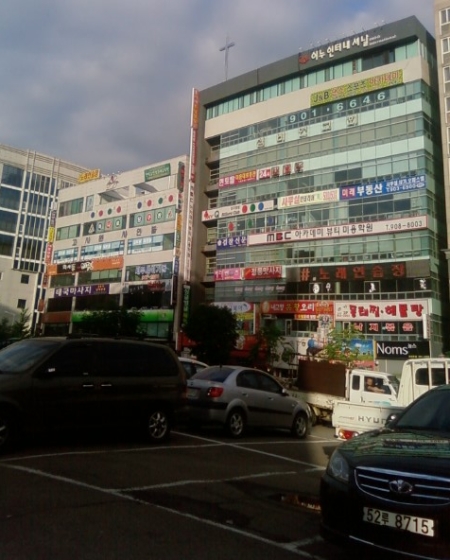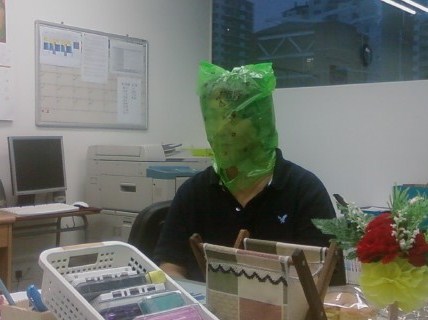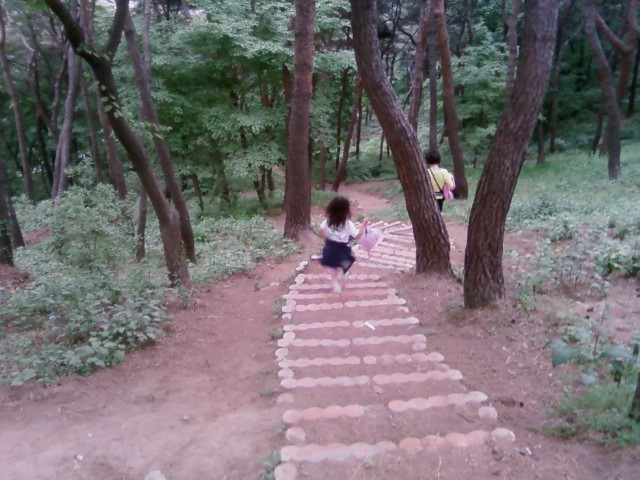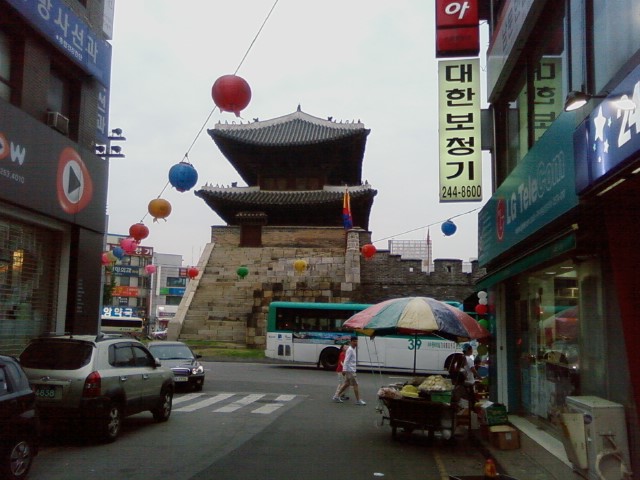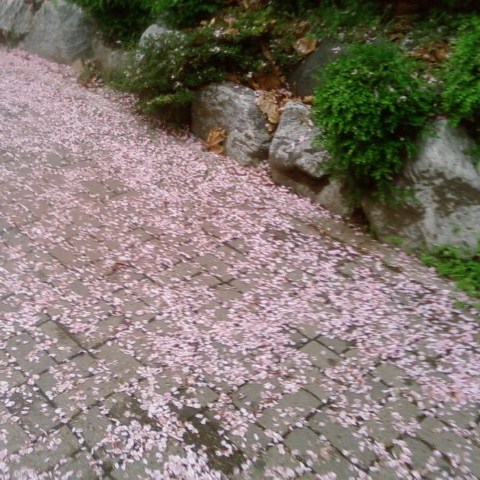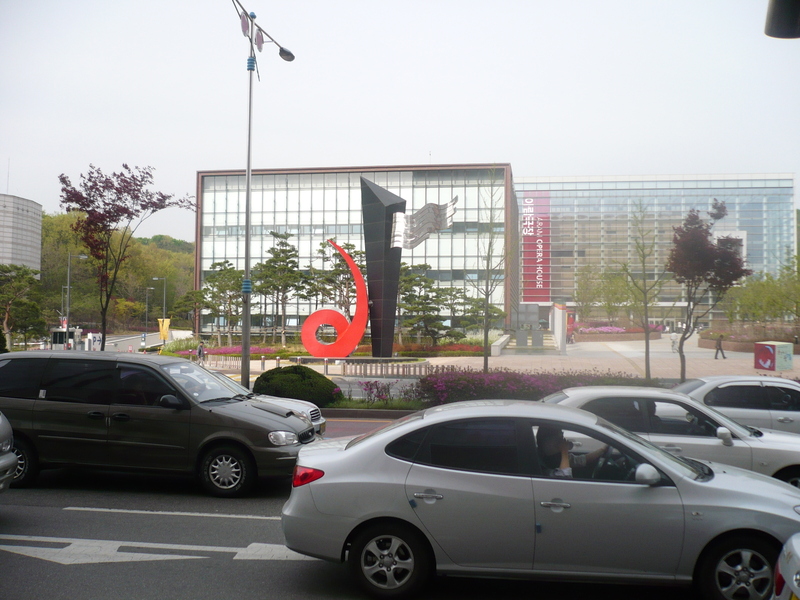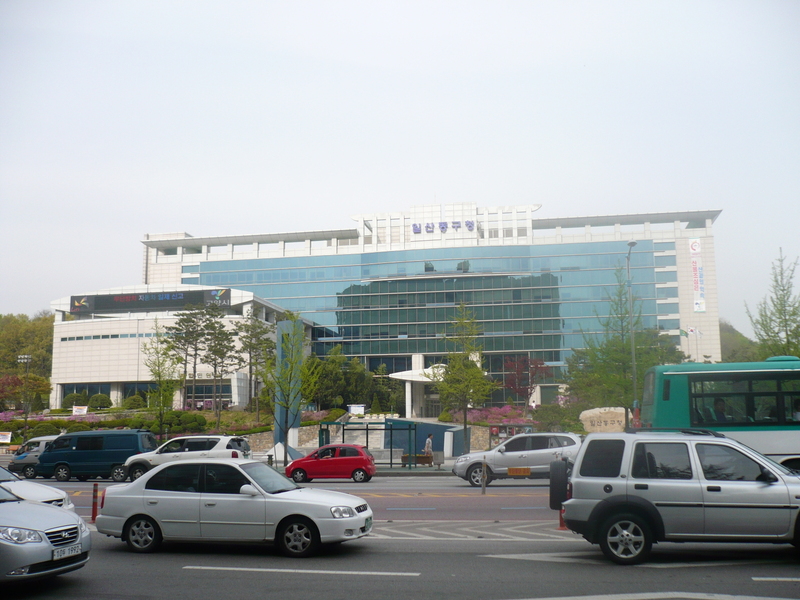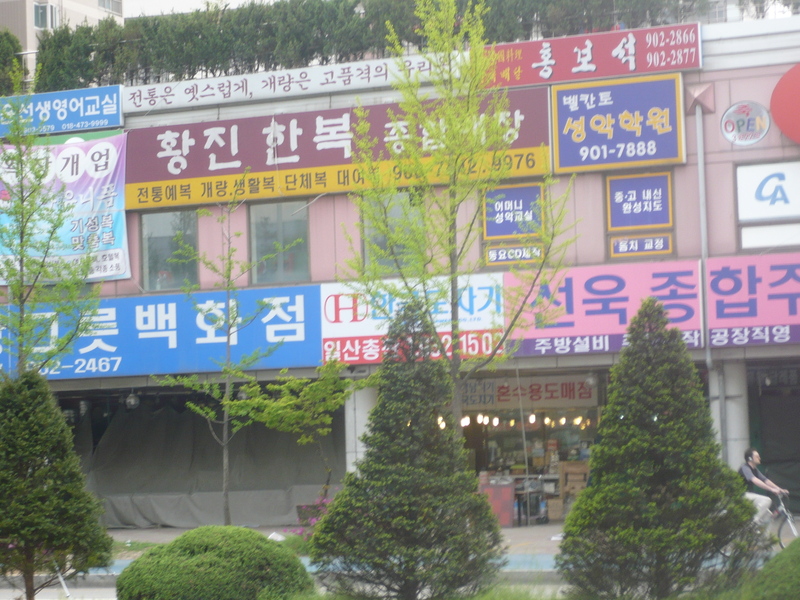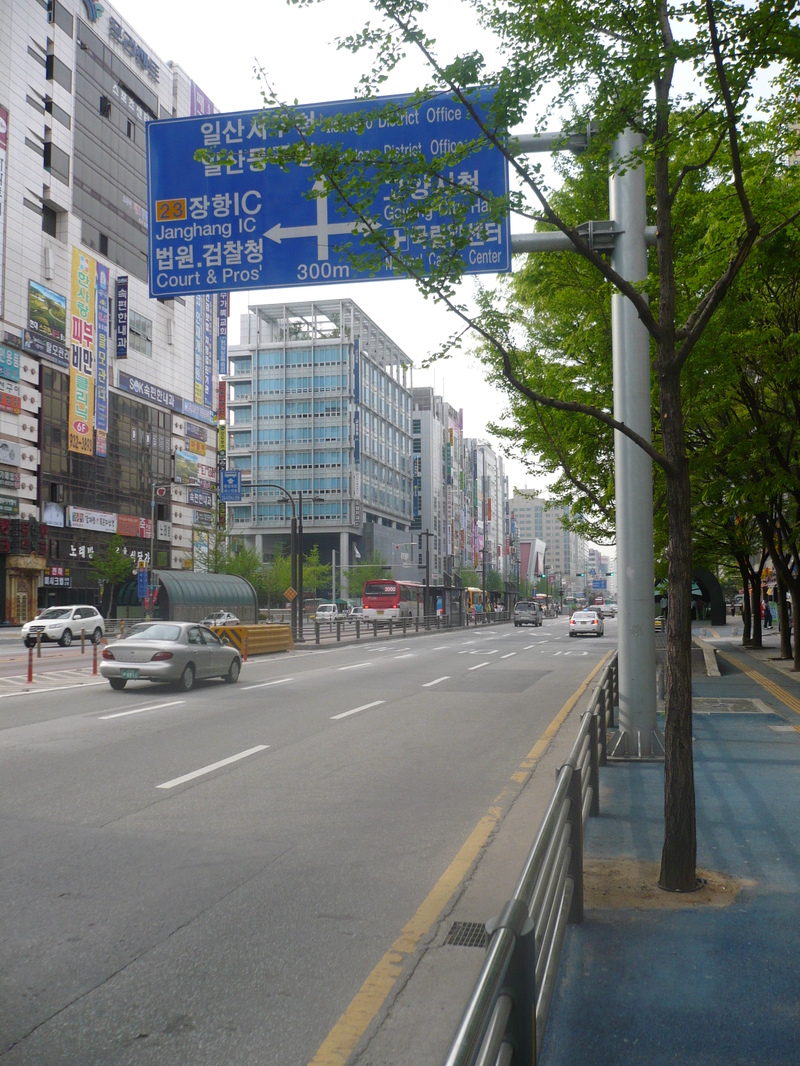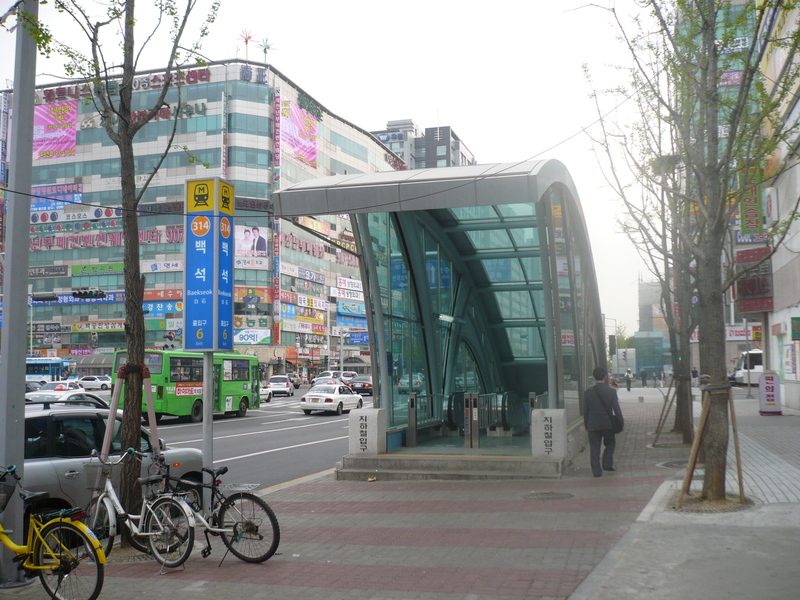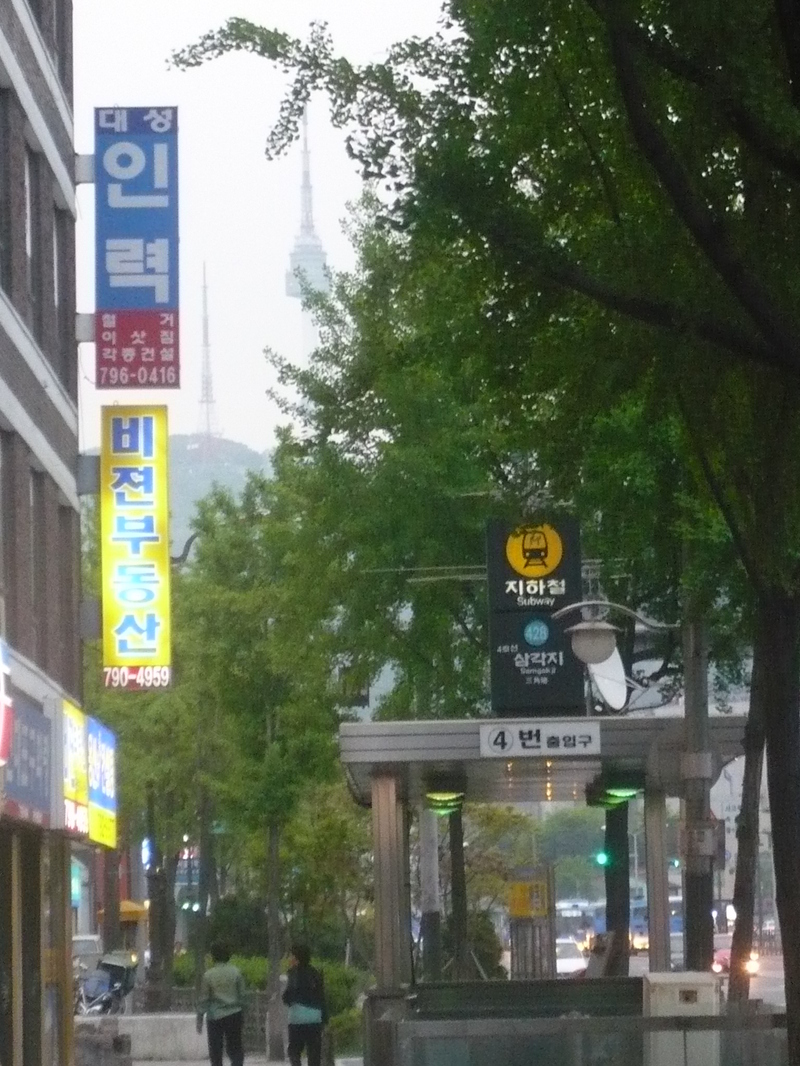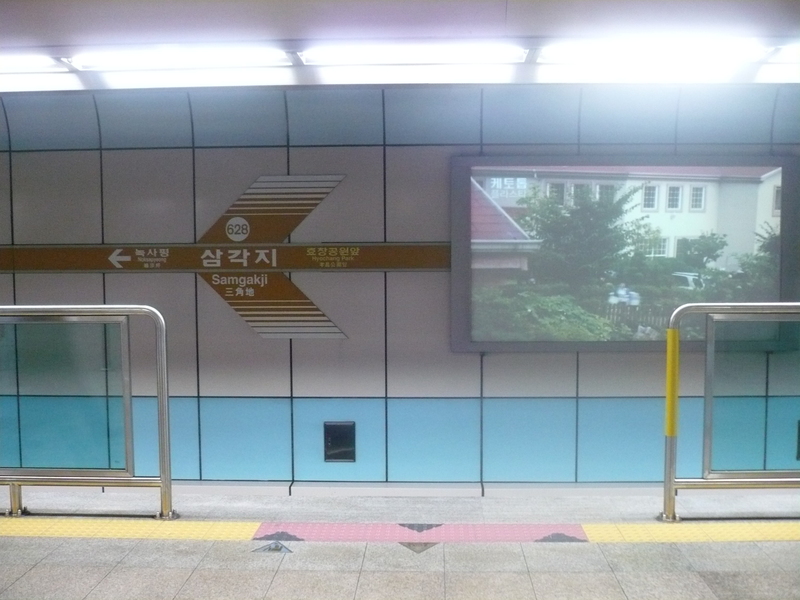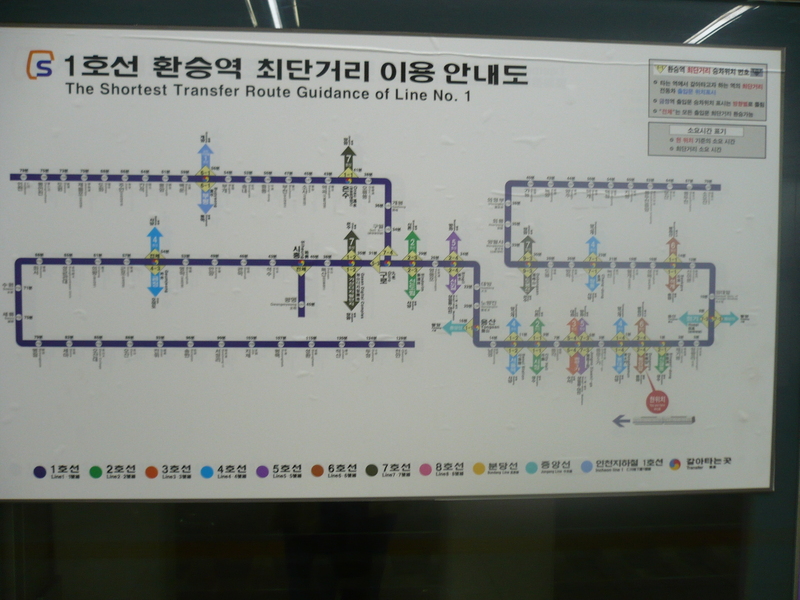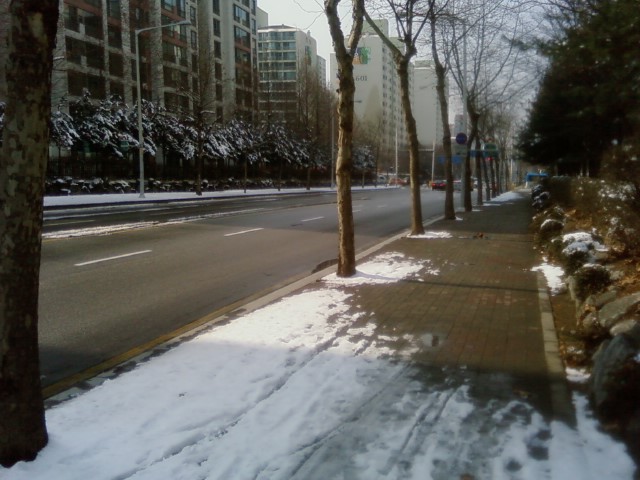I'm approaching the two-thirds (eight month) mark of my one-year commitment, here. And so, I want to try to set down my reflections about what I came here to do, and what I have been doing.
I guess I'm not that happy with things. There's the professional side – the desire to come and "try out" teaching, again – to try to replace the lucrative but ultimately frustrating and disillusioning career I'd been organically creating for myself in the world of database software development and business systems analysis. Then there's the personal side – the various personal challenges I'd set for myself as part of coming here.
First, I can only say I'm pretty disappointed in myself, with respect to the latter category. I haven't been using my extra-curricular time either productively or even particularly enjoyably. My creative writing has been at a near standstill since arriving in Korea last September. The work on my perennial never-started thesis on Persiles remains… never-started.
And my efforts to learn the Korean language keep crashing against the double barrier of – on the one hand – a lack of opportunities (and/or willing tutors) to have intensive real language practice, and – on the other hand – my own inexcusable deficit in motivation.
Not only that: I haven't even been particularly prompt or efficacious in taking care of those small bureaucratic necessities, such as my income tax problem. I procrastinate on doing paperwork, or miss the appropriate time to make a call to the states, or forget to follow up on an email to my accountant.
Meanwhile, I muddle along in the professional sphere. Before launching into a diatribe of tribulations and complaints, however, I should underscore one important fact: despite everything, I still enjoy going to work each day more than I did when working in Long Beach. I enjoy the children almost without exception – even the most behaviorally obtuse 6th grader is a huge improvement over my utterly brilliant yet fearsomely erratic and eerily unsupportive boss in Long Beach. And the school's staff politics are nothing compared to the backstabbing head-games prevalent at Paradise Corp in Burbank. And the 40-something hours I put in each week are certainly an improvement over the 80-plus I was putting in before – if I remain disappointed in how I am utilizing my off-time (see above).
So now, regarding the job: a critical review of my working experience in Korea, so far. At the outset, it is important to separate two things: 1) criticisms and thoughts about my own performance and behavior on the job, versus 2) criticisms and thoughts about my professional environment – the school, my supervisors and colleagues, the general situation of ESL education in South Korea. These things are interconnected to a high degree, however – especially in the sense that the same subjective feeling or experience can be discussed in view of either perspective, and the former, above, always will color the latter. For this reason, keep in mind that I combine these two issues indiscriminately in what follows.
First, I have some ideas about pedagogy and method. My exposure to these concepts is not extensive. I would consider it extensive if I'd managed a minor or major in foreign language education, for example, instead of just several courses on TESOL taken in late 80's, and the one intensive course in teaching-Spanish-as-a-foreign-language at Penn in the mid 90's. But, compared to my colleagues here, my theoretical range is deep and vast – which is not to say that such theoretical background is necessarily relevant, meaningful, or even helpful in the trenches. But it cannot help but influence how I look at things.
Korean EFL education is, for the most part, in the grammar-translation dark ages. Students are taught plenty of English grammar, and infinite lists of utterly de-contextualized vocabulary, but even after several years are frequently unable to construct more than basic sentences for conversation. Of course there are exceptions, and plenty of parents have managed to send their kids off to relatives in an English speaking country, or to expensive vacation-time language camps. But the hagwons (after-school academies) are almost exclusively in the Japanese "cram-school" model, and focus on rote instruction and test preparation.
Further, as far as I can tell, no one in my "chain of command" up to, at the least, the regional director of the schools I work for, has any evident training whatsoever in foreign language pedagogy, second language acquisition theory, and even seem to lack background in general linguistics and general elementary or adolescent pedagogy.
Efforts to apply curricula designed around more progressive ideas, such as a more communicative-based instruction (my personal preference), founder against a double resistance: staff members who are uncomfortable with it, and parents who are convinced that if little Iseul doesn't have a list of 50 words to memorize each night, she's being neglected by her teachers. The ill-fated "debate program" I've been involved in test-flying has had exactly this happen to it, as it keeps being "cut back" and reduced in scope.
But my most significant frustration boils down to a single core issue: L2 versus L1. In academic discussion of foreign language teaching methodology, L1 stands for the students' native language, and L2 stands for the "target" language. For me, here, L1 = Korean, and L2 = English. And the problem is that I remain deeply and philosophically committed to the idea that "good" foreign language instruction requires an unwavering dedication to L2-only classrooms. And the fact is, that L1 is so dominant in the school where I teach, now, it's downright depressing.
Some of my colleagues seem to believe that my frustration with the predominance of Korean as the language of instruction and administration in the school is related to my own inability to speak it. I wish they could have been present at the heated departmental meetings at Moorestown, New Jersey where I taught Spanish in 97-98. I argued there, too, that a Spanish classroom should be a SPANISH classroom, even at the lowest levels. And certainly my argument there wasn't influenced by the fact that I was weak in L1 (which there, and then, was obviously English).
There are reasons related to the nature of the job market here, however, that explain the predominance of L1 at least in part. The fact is, truly qualified English speakers are difficult to come by, here. At least several of my coworkers speak English at a level of competence and/or confidence that is inferior to some of their best students. I in no way mean this as a criticism of them as human beings, nor even as concerned, dedicated teachers. But when it is taxing work for ME to understand them and be understood by them, it is no wonder that in-classroom language devolves rapidly into Korean.
The Korean government seems to exacerbate the problem to some degree by, on the one hand squeezing supply through the injudicious creation and application of temporary worker laws, and on the other hand squeezing demand through mis-regulation of the private school markets.
I think that's enough, on theory. Onto practice, where the shortcomings are more definitely my own.
Most notably (and depressingly), there is an emerging consensus that I'm not a very good teacher. All the theory doesn't help much, in front of a bunch of unmotivated teenagers. Coming from one or two people, I can dismiss such concerns as originating in either a misunderstanding or a lack of empathy, or perhaps in poorly understood cultural differences. But not only have several people independently seemed to reach the conclusion here, but such feedback is not totally out of line with similar feedback I received in 97-98.
The core problem is: 1) I'm fundamentally too cerebral (which makes me "boring"), and 2) I'm too laid-back and too prone to attempt to interact with the kids as if they were adults (which means I have "classroom control issues"). I tend to try to tie the two problems together as both being features of my fundamental pedagogical philosophy, which is that I'm not supposed to be there to "motivate" students, but rather to "mentor" them – which is to say, I do great with self-motivated students who eagerly want to learn, but not so well with those whose own commitment to learning is limited. All of which boils down to: I'm only good at teaching students who are more or less the same type of student that I, myself, am.
No matter how much I enjoy the company of the kids in class, and no matter how much I try to be more entertaining or "interesting," my essentially introverted personality causes me to disappoint my peers, my students, and myself.
More than one of my friends and family have responded to these self-criticisms with the observation that I don't really belong as a teacher in a grade-school or high-school environment. That I'm meant to be, and should be, a college teacher. Easy to see, and to agree with. But not an easy path to take, since the research-driven academic career clearly hasn't been my forte, so far. I'm too unfocused, too much the dilettante or generalist.
There are other criticisms, which I may have a better chance of conquering. Most notably, people often complain that, more than other English speakers, I am "difficult to understand" and especially, that I speak "fast." I get defensive about this, and return to the L2 acquisition theory I learned, pointing out that an unfamiliar language (and an unfamiliar accent within a given language) will always sound "faster" to the naive listener – this is a demonstrated "fact" of perceptual psychology, and exhaustive studies of speakers of different languages and different speakers of individual languages show a far smaller variation in "rate of speech" than what we perceive subjectively. It is only familiarity and/or lack of familiarity that mostly impacts subjective perceived rate of speech.
Yet… surely to the extent it is objectively true, that must impact my ability to be an effective English teacher. And in conclusion I have to admit that there are real reasons for this understandability problem that I have, that I can clearly identify, if I listen to myself with some objective introspection (is that a paradox?).
Firstly, I tend to use an overly large vocabulary, and I'm actually pretty bad at "dumbing down." But part of the problem here comes back to the lack of a programmatic methodology to back me up. If the curricula being applied in the school were sufficiently developed and sophisticated as to be able to provide clear lists of level-appropriate vocabulary (e.g. at level X, these words should be used… at level Y, these additional words should be known), I could use such lists to police my vocabulary fairly effectively, just as was done when I taught Spanish at the University of Pennsylvania, where each textbook had a teacher's guide with exhaustive lists of level-appropriate active and passive vocabulary, and all the texts were integrated into a broader curricular program.
The other side of the "understandability" problem is more difficult – I also tend to use too much "fringe" grammar – that is to say, I get creative with things like word order and sentence structure, and experiment with the many regionalisms I've been exposed to over the years. English "allows" this, but it is definitely not appropriate in an L2 universe. And this issue does not recapitulate any issue I ever had with Spanish, which, despite my fairly high level of fluency, was still nevertheless always an L2 for me. I do this "playing with grammar" almost unconsciously, and when I catch myself doing it, it's discouraging how pervasive I see it to be.
Perhaps, not all the news on the "boring teacher" front is bad news, however. My colleague Grace sighed the other afternoon, "I'm becoming a boring teacher!" Paradoxically, this complaint gave me hope – let me explain why.
First of all, Grace is the person at work whom I most respect. She's not only the only person on the staff who is truly (i.e. "natively") bilingual, she's also a talented teacher who is clearly beloved and admired by her students. If you ask our students who their favorite teacher is, the only answer I have ever seen in writing or in heard in speech is "Grace." And their answers are well-reasoned – it's not just a matter of her being "easy" or "entertaining," which are sometimes features of popular teachers. Instead, they will explain that she is demanding but fair, serious but kind, etc. She's whom I would wish to emulate, if only I could figure out how.
And so, the fact that she was bemoaning the problem of becoming boring gave me hope, because it meant that perhaps I could blame the curriculum for at least some of my problem. You see, this de-evolution of our curriculum toward the stone ages is in part the consequence of my original employer's having sold out to a large and expanding chain hagwon business. Under its previous proprietors, the school was much less rigid in terms of curriculum, which had both advantages (such as the ability to be more creative in the classroom), but also disadvantages (such as a serious lack of guidance in terms of expectations).
The depressing side of the above is that if the big hagwon chains are being successful by pitching brutalist combinations of grammar-translation-style ESL instruction and Japan-style cram-school test prep, that doesn't send a very promising message about the current Korean ESL market. And, as much as it pains me to say it, I believe very wholeheartedly in markets. People really want this stuff. So what does that say about the potential for enlightened ESL methodology?
None of which solves the underlying dilemma – am I going to keep trying to be a teacher? Or go off on yet another tangent in life? I've gotten some extremely discouraging feedback from my more candid (or perhaps less deluded) acquaintances: something to the effect of, "if your blog is any reflection of your classroom personality, you really ARE boring." And yet the bad news is, this is REALLY me. This is how I write when I edit myself least, and these are the things I think about.

